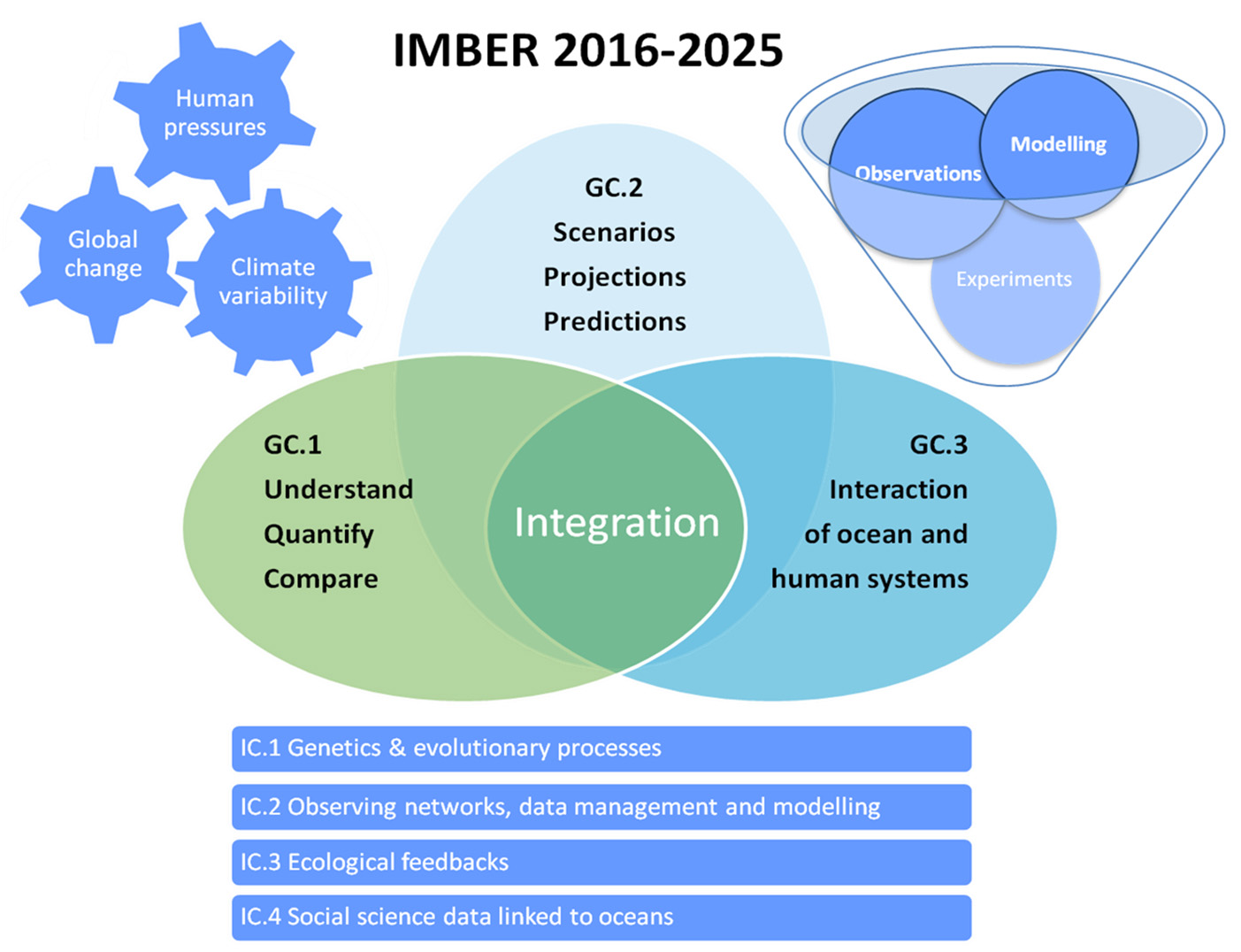IMBER – Synthesis and the Way Forward
The Integrated Marine Biogeochemistry and Ecosystem Research (IMBER) project has developed a new Science Plan and Implementation Strategy (SPIS), to guide the next decade of research into marine biogeochemistry, ecosystem structure and functioning, the human dimensions of global marine change, and interactions between each of these.
The SPIS recognizes that marine ecosystems (including biogeochemical cycles and human systems) are linked to natural and anthropogenic drivers and stressors. IMBER’s vision focuses on ocean sustainability under global change for the benefit of society. The research agenda is based on three grand challenges (GCs) focusing on climate variability, global change and human drivers and stressors, and innovation challenges (ICs) on new areas for IMBER where research is needed and it believes major achievements can be made within 3-5 years (Figure below). GC 1 considers the state and variability of marine ecosystems, the impacts of natural variability and anthropogenic global change, across time and space scales. GC 2 focuses on predictions and projections of ocean-human systems at multiple scales, including improving ecosystem models to test and evaluate scenarios. GC 3 is about improving and achieving sustainable governance, improving the science-policy-society interface and developing new linkages between marine and human systems, and “communicating relevant information and knowledge needed by society to secure sustainable, productive and healthy oceans”. Implementation of the GCs is provided by the ICs that consider metabolic diversity and evolution, global ocean observational and modelling networks, ecological feedbacks in the Earth system, and social science data for ocean management, decision-making and policy development.
The new SPIS maintains IMBER’s strong commitment to basic, curiosity-driven science and will expand into new areas of problem-driven, policy-relevant interdisciplinary research. The SPIS is currently under review and will be published later in 2016.

Figure: Integrative structure of IMBER Grand Challenges (GC) and Innovative Challenges (IC). Marine ecosystems are responding to major pressures (upper left) that operate at a range of scales. Understanding, quantifying and predicting responses of marine ecosystems to these pressures requires integrated observational, experimental and modeling programs (upper right). Please click here to view the figure larger.
Written by: Eileen Hofmann (Old Dominion University, Norfolk, VA) and Carol Robinson (University of East Anglia, Norwich, UK).

